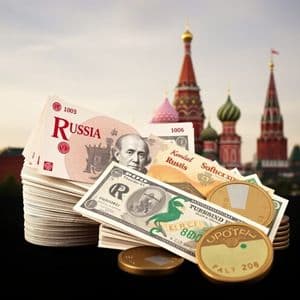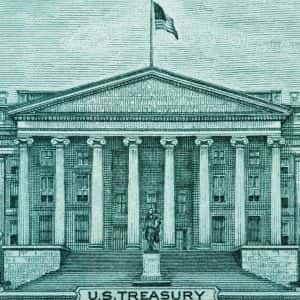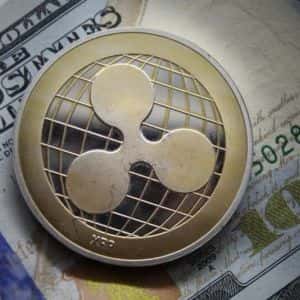BitcoinWorld Russia’s Crucial Shift: Halting Foreign Currency Sales from Wealth Fund by 2026 A significant development is on the horizon that could reshape Russia’s financial strategy and send ripples across the international financial 0 Kremlin has announced a pivotal decision: Russia will cease foreign currency sales from its Russia wealth fund by 1 move, while perhaps seeming technical at first glance, carries profound implications for the Russian economy, its geopolitical standing, and potentially the global forex 2 those tracking macro trends, energy markets, or the evolving dynamics of international finance, understanding this shift is 3 signals a deeper recalibration of Russia’s economic playbook in response to a complex global 4 is the Russia Wealth Fund and its Strategic Role?
To fully grasp the magnitude of this announcement, it is essential to understand the National Wealth Fund (NWF) 5 referred to as Russia’s rainy-day fund or sovereign wealth fund, the NWF plays a critical role in the nation’s financial stability and long-term 6 in 2008, its primary purpose was to support the country’s pension system and act as a buffer against volatile oil prices and economic 7 accumulates revenues from oil and gas exports when prices exceed a certain threshold, effectively saving a portion of the country’s natural resource wealth for future generations. Historically, the NWF has been a source of stability, providing funds for strategic investments within Russia and acting as a fiscal cushion during periods of economic 8 assets are typically held in a mix of foreign currencies, gold, and other liquid instruments, designed to preserve capital and generate 9 fund’s management is overseen by the Russian Ministry of Finance, with the Central Bank of Russia acting as its asset 10 decision to cut foreign currency sales from this vital fund is not merely an administrative adjustment; it is a strategic recalibration of how Russia intends to manage its national wealth and interact with the global financial 11 NWF’s structure and operational guidelines have evolved over time, reflecting Russia’s changing economic priorities and the external pressures it 12 ability to absorb shocks and fund national projects makes it a cornerstone of Russian economic resilience.
Therefore, any significant policy change regarding its operations warrants close attention from global 13 Pivotal Shift: Halting Foreign Currency Sales Russia The core of the recent announcement is Russia’s intention to discontinue foreign currency sales Russia from the National Wealth Fund starting in 14 marks a departure from a practice that has been an integral part of Russia’s fiscal rule, designed to manage the inflow of petrodollars and stabilize the ruble. Previously, excess oil and gas revenues flowing into the NWF were converted into foreign currency, often to be held in external assets or used for specific 15 new policy suggests a strategic pivot towards greater self-reliance and reduced exposure to external financial 16 the exact mechanics of how the fund will operate post-2026 are still being detailed, the general direction is clear: Russia aims to reduce its reliance on foreign currencies within its strategic 17 could mean a greater emphasis on domestic investments, a shift towards holding assets in alternative forms (such as gold or currencies of friendly nations), or simply a cessation of the automatic conversion of oil and gas revenues into traditional foreign currencies like the 18 or 19 this specific timeline?
The two-year lead time provides the Russian financial authorities with a window to prepare for this significant change, allowing for a gradual transition and minimizing immediate market 20 also gives international markets time to adjust to Russia’s evolving financial 21 phased approach suggests a calculated move rather than an abrupt reaction, indicating long-term strategic planning behind the 22 implications for the ruble, Russia’s domestic liquidity, and its trade relationships are 23 reducing foreign currency sales, Russia could exert more control over its domestic financial environment and potentially reduce volatility stemming from external currency 24 move aligns with a broader trend of de-dollarization and diversification that several nations are exploring in the current geopolitical 25 Global Headwinds: Understanding Russian Economic Policy This decision is not an isolated event but rather a critical piece of a larger puzzle that constitutes contemporary Russian economic 26 recent years, particularly following the imposition of extensive international sanctions, Russia has been compelled to re-evaluate and reorient its economic 27 primary goal has been to enhance economic sovereignty, reduce vulnerability to external pressures, and foster internal 28 pillars of this evolving policy include: De-dollarization: A concerted effort to reduce reliance on the 29 in international trade and financial transactions, favoring other currencies or bilateral 30 Substitution: Investing heavily in domestic production to replace goods and services previously imported, thereby strengthening local industries and reducing 31 to the East: Shifting trade and energy relationships away from traditional European markets towards Asian economies, particularly China and India, to secure new markets and supply 32 Accumulation: The Central Bank of Russia has been a consistent buyer of gold, viewing it as a reliable store of value and a hedge against geopolitical risks, less susceptible to sanctions than foreign 33 Prudence: Maintaining strict fiscal discipline and building up reserves to withstand economic shocks, a strategy reinforced by the NWF’s 34 move to cut foreign currency sales from the NWF perfectly encapsulates these policy 35 reflects a desire to minimize the accumulation of currencies that could be frozen or restricted by sanctions, while simultaneously promoting the use of the ruble or other non-Western currencies in 36 strategic shift underscores Russia’s long-term commitment to building an economic framework that is resilient and less susceptible to external leverage, a lesson learned from the severe sanctions imposed after 37 Ripples: How This Impacts the Global Forex Market The decision to cease foreign currency sales Russia from its wealth fund is poised to have notable implications for the global forex market , though the precise extent will unfold over 38 Russia’s economy is not as large as some global powerhouses, its role as a major energy exporter and its substantial reserves mean its financial maneuvers can still create ripples.
Here’s how this could play out: Reduced Demand for Traditional Foreign Currencies: If Russia stops converting its oil and gas revenues into 39 or Euros for its wealth fund, it implies a decrease in Russia’s demand for these specific currencies in the open 40 time, this could contribute to a marginal downward pressure on these currencies relative to others, or at least reduce a source of 41 Demand for Alternative Assets: Conversely, the funds that would have been converted into traditional foreign currencies might now be directed towards other 42 could include further accumulation of gold, or an increase in holdings of currencies from ‘friendly’ nations (e.
g., Chinese Yuan, Indian Rupee) if suitable investment vehicles and liquidity are 43 shift could boost the standing of these alternative assets in global 44 Volatility and Management: The cessation of foreign currency sales might necessitate new mechanisms for managing ruble liquidity and stability. Historically, the central bank used foreign currency interventions to smooth out ruble 45 less foreign currency flowing into the NWF, new approaches might be needed to prevent excessive ruble appreciation from oil revenues, or to manage depreciation during price 46 Market Dynamics: As a major commodity exporter, Russia’s financial decisions often intertwine with commodity 47 Russia moves towards greater use of non-dollar currencies for its energy exports, it could further fragment the commodity trading landscape, impacting pricing benchmarks and hedging 48 cumulative effect of such actions by a major economy contributes to the broader trend of de-globalization and the emergence of a multi-polar financial 49 not an immediate seismic shift, it represents a slow, deliberate erosion of the traditional dollar-centric financial order, prompting other nations to consider similar strategies for economic 50 Challenges: The Long-Term Sanctions Impact and Diversification Strategies The context of international sanctions cannot be overstated when analyzing Russia’s latest financial 51 severe sanctions impact imposed by Western nations has profoundly influenced Moscow’s approach to its national wealth and its engagement with global 52 sanctions have targeted Russia’s central bank reserves, financial institutions, and key economic sectors, prompting an urgent need for adaptation.
Russia’s response has been multi-faceted, focusing on diversification and building financial fortresses: Reduced Western Asset Exposure: The freezing of substantial central bank reserves held in Western jurisdictions served as a stark 53 has since actively sought to minimize its exposure to assets that could be seized or rendered 54 Market Development: Strengthening domestic financial markets and payment systems (like the Mir payment system) reduces reliance on international platforms that could be 55 Payment Systems: Exploring and expanding the use of non-SWIFT payment channels and bilateral currency swaps with trading partners to circumvent traditional Western-controlled financial 56 as a Strategic Asset: Gold holdings are seen as immune to traditional financial sanctions, making them an increasingly attractive component of Russia’s 57 Internationalization (Limited): While full ruble internationalization remains a long-term goal, promoting its use in trade with key partners helps reduce reliance on foreign 58 decision to halt foreign currency sales from the NWF is a direct consequence of this strategic 59 aims to insulate Russia’s strategic reserves from future sanction risks and to further de-link its financial system from the influence of nations imposing 60 long-term strategy of financial independence, while potentially costly in terms of efficiency and access to global capital markets, is viewed by Moscow as a necessary step for national security and economic 61 challenges are 62 reserves and trade away from established global systems takes time and requires willing partners.
However, the move signals Russia’s commitment to this path, accepting the trade-offs for perceived greater control and resilience against external economic 63 and Opportunities for the Russian Economy This strategic financial maneuver presents both challenges and opportunities for the Russian 64 the challenge front, a reduced engagement with traditional foreign currency markets might limit Russia’s ability to smoothly execute international transactions or access certain global capital 65 could also lead to increased administrative complexities in managing its trade balances and reserves. However, the opportunities are compelling: Enhanced Fiscal Autonomy: Greater control over its national wealth fund allows Russia to allocate resources more directly towards domestic priorities without external currency conversion 66 for Domestic Investment: Funds that might have been held in foreign currency assets could now be channeled more readily into internal infrastructure projects, technological development, and other strategic sectors, fostering domestic 67 External Vulnerability: By minimizing exposure to currencies susceptible to sanctions, Russia strengthens its economic resilience against future geopolitical 68 of Alternative Currencies: This move indirectly supports the broader agenda of promoting non-dollar and non-euro currencies in international trade, aligning with its partners’ de-dollarization 69 long-term success of this strategy hinges on Russia’s ability to maintain stable economic growth, manage inflation, and foster strong trade relationships with non-Western partners.
It’s a calculated gamble on a more insular yet potentially more robust financial 70 Insights for Investors and Analysts For investors, economists, and market analysts, Russia’s decision offers several key takeaways and areas to monitor: Currency Markets: Keep a close eye on the ruble’s performance and the Central Bank of Russia’s intervention 71 significant shifts in demand for major currencies from Russia could have localized, albeit perhaps not globally systemic, 72 Flows: Observe how Russia’s energy and commodity exports are priced and 73 increase in non-dollar settlements could impact currency hedging strategies for commodity 74 Wealth Fund Trends: This move could inspire other nations, particularly those facing similar geopolitical pressures, to re-evaluate their own sovereign wealth fund strategies and reserve 75 for similar diversification moves 76 Market: If Russia continues to prioritize gold accumulation, it could provide underlying support for gold prices over the long term, reinforcing its role as a geopolitical 77 Risk Assessment: This financial maneuver underscores Russia’s long-term commitment to economic 78 should factor this into their geopolitical risk assessments and understand its implications for international trade and 79 decision signals a continued fragmentation of the global financial 80 these dynamics is essential for navigating the complexities of modern international markets.
Conclusion: A New Chapter in Russian Financial Strategy Russia’s announcement to halt foreign currency sales from its National Wealth Fund by 2026 marks a crucial juncture in its economic 81 strategic decision is a testament to Moscow’s unwavering commitment to bolster its financial sovereignty, mitigate the lingering sanctions impact , and reorient its economic trajectory away from traditional Western financial 82 reflects a proactive and long-term vision for the Russian economic policy , prioritizing resilience and 83 the immediate ramifications for the global forex market might be subtle, the cumulative effect of such moves by major economies signals a broader shift towards a multi-polar financial 84 the Russia wealth fund , this means a likely pivot towards alternative assets and domestic investments, fundamentally altering its operational 85 development will require careful observation from all corners of the financial world as Russia embarks on this new chapter of economic 86 Asked Questions (FAQs) What is Russia’s National Wealth Fund?
The National Wealth Fund ( Russian Ministry of Finance ) is Russia’s sovereign wealth fund, accumulating oil and gas revenues to support its pension system and provide a fiscal buffer against economic 87 is managed by the Ministry of Finance with the Central Bank of Russia acting as asset 88 is Russia stopping foreign currency sales from the NWF? This strategic move aims to reduce Russia’s exposure to Western financial assets, enhance its economic sovereignty, and mitigate the sanctions 89 aligns with Russia’s broader de-dollarization efforts and a pivot towards more self-reliant financial 90 will this change take effect? Russia plans to cease foreign currency sales from its National Wealth Fund starting in 2026, providing a two-year transition period for financial authorities and markets to 91 might this affect the global forex market?
While not expected to cause immediate drastic shifts, it could lead to reduced Russian demand for traditional foreign currencies (like USD and EUR) and potentially increased demand for alternative assets such as gold or currencies of ‘friendly’ nations (e. g., Chinese Yuan ). This contributes to the ongoing trend of a more fragmented global financial 92 are the implications for the Russian economy? The move is expected to boost fiscal autonomy, potentially stimulate domestic investments, and further insulate the Russian economy from external financial 93 represents a long-term commitment by leaders like Vladimir Putin to a more resilient and self-sufficient economic framework, despite potential challenges in global financial 94 learn more about the latest Forex market, macro trends, and geo-political developments, explore our article on key developments shaping global liquidity and institutional 95 post Russia’s Crucial Shift: Halting Foreign Currency Sales from Wealth Fund by 2026 first appeared on BitcoinWorld .
Story Tags

Latest news and analysis from Bitcoin World



